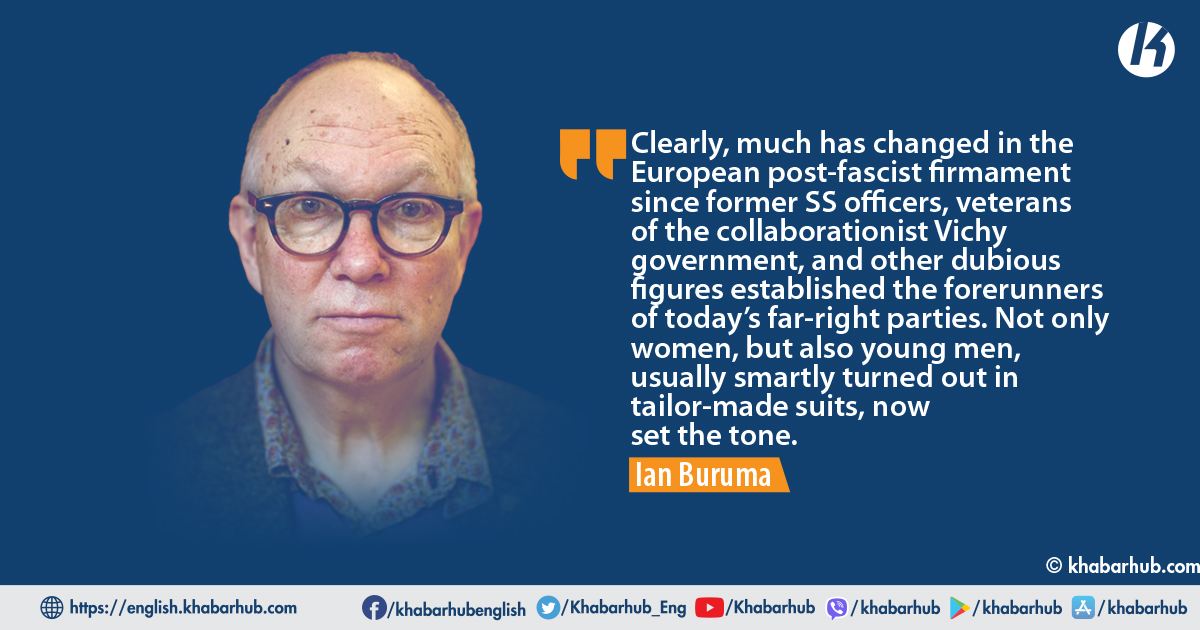Not so long ago, the far right in Europe was associated with shabby old men nostalgic for the good old days of order and jackboots.
The far-right political parties in France and Italy, now led by women, were founded by former SS officers, veterans of the collaborationist Vichy government, and other dubious figures who had emerged from the shadows of World War II.
The same goes for the Democrats in Sweden, who won 20.6% of the votes in the most recent election.
Clearly, much has changed in the European post-fascist firmament. Giorgia Meloni, leader of the far-right Brothers of Italy party, will be the first woman to be Italian prime minister.
Marine Le Pen’s National Rally won 89 seats in the French parliament. And the Sweden Democrats will have a strong voice in national politics, even though they will stay outside the government.
Not only women, but also young men, usually smartly turned out in tailor-made suits, now set the tone for the European far right.
Moderate conservative parties in Europe have not yet been taken over by extremists, as happened with the Republicans in the United States, but fear of losing votes has driven them further toward the fringe.
This does not mean that we are about to wake up in 1933. History never repeats itself in the same way. Meloni is not Mussolini, and there is no Hitler, so far, lurking in the wings.
There are in any case many versions of right-wing extremism. The same was true of prewar fascism. Each country has its own history, and its own brand of demagoguery.
There is nothing intrinsically wrong with their worldview. Economic globalization lifted many people from poverty. International cooperation in common institutions is preferable to nationalism and border walls. And a generous attitude to asylum-seekers and immigrants is humane, culturally enriching, and brings new dynamism to a society.
Still, all forms of right-wing populism have certain things in common. The politics of resentment appeals to people who feel left behind and ignored. In most countries, the deeper one goes into the provinces, the more ill feeling toward the so-called elites one encounters.
Race plays its usual corrosive role in the US. Many rural white people resent the rise of Black people in public life. And everywhere, fear and discontent find a ready outlet in hostility toward immigrants.
Then there are those who feel humiliated by a lack of recognition or success: failed writers, third-rate academics, or, increasingly, young men from good families, who can no longer take the privileges of their class for granted.
This explains the rise of what might be called the “frat boy right,” stronger in Europe than the US, and the proclivity for snappy suits.
Far-right parties’ recent electoral successes are frequently seen as a failure of their mainstream rivals, who are widely blamed for a lack of coherence. One doesn’t know what they really stand for.
This is not entirely fair. What mainstream parties like Labour in the United Kingdom, or the Democrats in the US, stand for is pretty clear: international institutions, global trade, flexible and generous immigration policies, and so on.
The problem is that this hardly distinguishes them from moderate conservative parties.
President Bill Clinton’s politics didn’t fundamentally differ from those of his predecessor, George H.W. Bush, and the same was true of Tony Blair and David Cameron in the UK, or Gerhard Schröder and Angela Merkel in Germany.
In Europe during the 1990s and the 2000s, many European governments were formed by coalitions comprising moderate left and moderate right parties.
Rule by technocrats, or political managers, became the norm. As a result, right-wing populists, such as Donald Trump, exploited a loathing not just of the left, but of the conservative establishment, too.
But there is one good reason why the progressives are even more resented than the conservatives: People hate hypocrisy. It is, of course, true that a degree of hypocrisy is essential in an open society.
Trump has shown us that the politics of resentment is usually destructive and not conducive to successful government. Can Meloni and other far-right leaders with the chance to govern do better? I’m not holding my breath.
Moral or ideological purism is the enemy of liberal democracy, just as always saying exactly what you think is not a sign of good manners. But there is a particular kind of left-wing hypocrisy that many people find especially irritating.
The mainstream progressive parties now get most of their votes from relatively well-educated people in large cities, people who travel for their work, speak more than one language, relish cultural diversity, and have a stake in the global economy.
There is nothing intrinsically wrong with their worldview. Economic globalization lifted many people from poverty. International cooperation in common institutions is preferable to nationalism and border walls. And a generous attitude to asylum-seekers and immigrants is humane, culturally enriching, and brings new dynamism to a society.
But not everyone benefits from the liberal world order. The middle class in Italy is feeling the pinch. Former industrial workers in the American Midwest are hurting. People in the French provinces feel marginalized by Paris. Moderate conservatives tend to take a stern view of such complaints. Stop whining and work harder, they say.
The left-wing reaction is more moralistic. People who complain about immigrants are denounced as racists. Those who have doubts about international institutions or global trade are dismissed as xenophobes.
But because the left still pretends to stand up for the underprivileged, this often has a strong ring of self-serving duplicity. Not only do progressive educated urbanites benefit from the liberal global order, but they also wish to take the moral high ground and lecture those who lack their education or prosperity.
This is one reason why people vote for Le Pen, Meloni, Trump, or the Sweden Democrats. If educated Londoners favor European Union membership, we will vote for Brexit.
If the “elites” talk about face masks or climate change, we will believe that these are hoaxes cooked up by George Soros or Bill Gates. This is the vengeance of the slighted, the politics of resentment.
Trump has shown us that the politics of resentment is usually destructive and not conducive to successful government. Can Meloni and other far-right leaders with the chance to govern do better? I’m not holding my breath.
(Ian Buruma is the author of numerous books, including Murder in Amsterdam: The Death of Theo Van Gogh and the Limits of Tolerance, Year Zero: A History of 1945, A Tokyo Romance: A Memoir, and, most recently, The Churchill Complex: The Curse of Being Special, From Winston and FDR to Trump and Brexit (Penguin, 2020).
Copyright: Project Syndicate








Comment